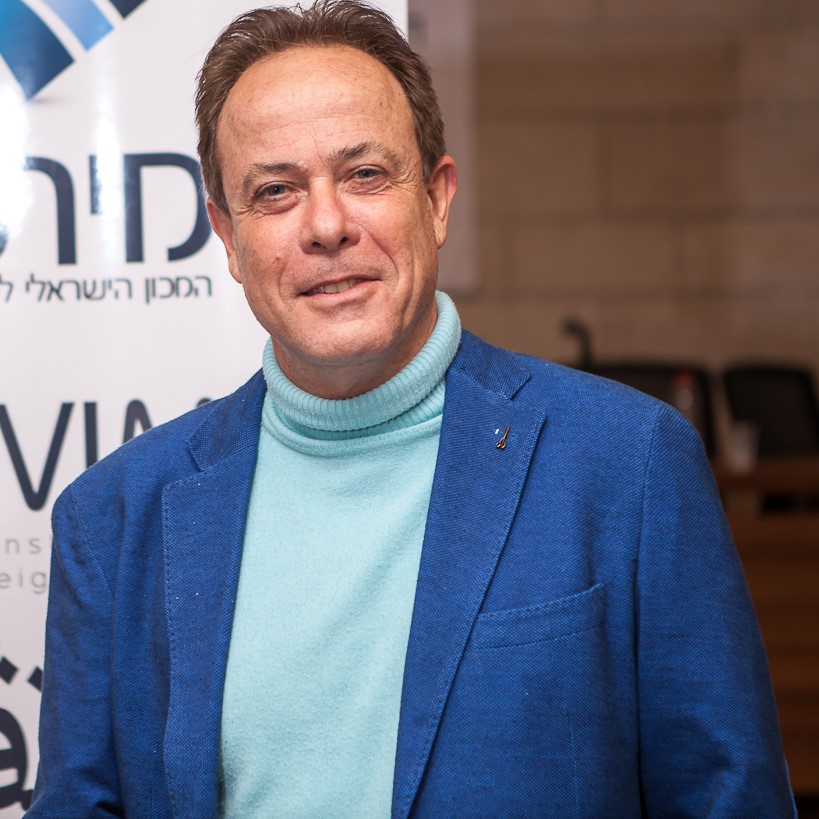Do the normalization agreements between Israel, the UAE and Bahrain now constitute a new Regional Security Complex (RSC)? Taking at its starting point the idea of the RSC first outlined by Buzan and Waever, this workshop explores how we might reimagine the RSC beyond the contingent idea of ‘adjacency’ With Israel and the Gulf monarchies as its focus, this workshop takes an interdisciplinary approach to exploring if RSCs are now defined more by path dependencies (some subtle, others less discreet) that are not so contained by geographical barriers. These dependencies might help explain change in RSCs which, hitherto, have been seen as largely static concepts and configured around shared identities as well as interests.
2) The Accords are a Strategic Choice for the Emiratis and Bahrainis that saw them as strengthening security and economic ties to Israel. They never were determined by the Israel-Palestine conflict although Netanyahu’s threat of unilateral annexation allowed them to come out of the ‘closet.’
3) Israel and the UAE sees the Accords as reflecting their own wider security, notably over Iran AND economic integration. On 1 April 2021 they signed a Free trade deal, covering everything from customs, services, procurement policy and intellectual property rights. Ninety-five percent of trade will be exempt from tariffs. Trade by August 2020 was already $1.4 billion (up from just $200m in 2020) and Mubadala SWF has a 22 per cent stake in Israel’s Tamar gas field and invested $100m in 6 Israeli venture capital firms. Equally, while Abraham Accords have grabbed the ‘headlines’ for the Israeli government, the East Mediterranean Gas Forum too represents an evolving coalition where economic drivers are enforcing security integration between Israel, Cyprus, Greece, France, Egypt and Italy overt gas is produced and transported.
4) The psychological, as well as political acceptance among Arab elites not just of Israel’s right to exist within secure boundaries but acknowledging the historic legitimacy of Jewish claims to the land, claims that 1) challenge the narrative of Zionism as a Colonial project and 2) implicit acceptance that this places such rights on a par with the Palestinians which has implications for issues related to the ‘right of return’ etc. This is implicit within the Abraham Accords. It is a huge boon for the Israelis and should not be underestimated.
5) To the above must be added the shared
concerns over the position of the United States. As Martin Indyk, former US
Ambassador to Israel noted, Washington’s “local partners will have to come to
understand their role in an American-supported, rather than American-led
regional order.” In
2021, Israel came u=inter the US Central Command, and participated in military
exercises under its umbrella with Bahrain and the UAE in November 20201.
Therefore, the broad question this workshop will seek to explore is the intellectual coherence of the Abraham Accords as a security hub. By exploring the history of Israel’s relations with the Gulf monarchies, and critically examining the current trajectory and type of relations that have evolved from the Accords, the workshop will examine the extent to which interests can become norms that, overtime , can be institutionalised within an agreed security framework.
More broadly, the workshop therefore looks to explore what factors have shaped the security architecture between Israel and the Gulf monarchies by examining the evolution, contemporary manifestation, economic reach and political influence of the relationships as a form of Regional Security Complex. While the Copenhagen School writers emphasised adjacency and proximity as key drivers of RCTs, the Abraham Accords suggest geographical proximity alone needs to be reimagined. Indeed, if a security complex is defined by the level of securitization that results from the scope and proximity of the interactions between its actors, the Abraham Accords highlight the process of at least partial de-securitization. The normalisation agreement between the UAE and Israel has in effect created a security hub (community) defined by amity (rather than enmity) and around which relations with other Gulf states have become mediated.
Higher education (HE) systems in the Gulf region have played a fundamental role in the advancement and development of their people. HE systems in the Gulf region have been characterized by their responsiveness to the needs of their peoples and governments, supporting the growth and development of their countries. These systems have also been responsive to the rapid global changes. In 2015, the emergence of the Global Sustainable Development Agenda 2030, with its 17 specific Sustainable Development Goals (SDGs) resulted in the call for governments around the world to work to achieve sustainable development and combat climate change. Moreover, climate change, which threatens both human beings and the planet, has also been under the microscope with great focus from international organizations and governments.
In terms of education generally and HE specifically, there has recently been a greater focus on concepts related to issues of climate change and sustainability in the form of sustainability education, environmental education, education for sustainable development, and climate change education. Accordingly, HE systems in the Gulf region are now orienting themselves to contribute to the SDG agenda. It is expected that HE systems in the Gulf region will work side-by-side with other systems in activating their role in achieving sustainability and combatting climate change.
However, this is no easy task. Gulf countries’ rapid economic development has been largely due to carbon-intensive resource extraction (Al-Badi & AlMubarak, 2019; Salahuddin, Gow & Ozturk, 2015). Studies have found that the per capita oil and gas consumption, and carbon emissions in the Gulf region is “uniquely high” among countries in the region (Hertog and Luciani, 2009). Although governments in the region have all now committed to carbon neutrality and shifting to sustainable sources of energy production, leaders have also doubled down on oil production in the wake of the Russian invasion of Ukraine.
Additionally, the concept of sustainability remains abstract, complex, and multidimensional (Ceulemans et al., 2015; Waas et al., 2011). As an emergent global model, meanings and practices associated with advancing sustainable development vary significantly (Williams & Millington, 2004). Sustainability has become a buzzword that is used by policymakers, scholars, scientists, journalists, and the public alike, due to its impact and significance. Scholars have worried that this will increasingly result in “greenwashing” – meaning commitments to sustainability that are not substantiated by action. These concepts have received significant attention from HE researchers globally but less so in the Gulf region.
With this in mind, this workshop will ask: how are HE systems in the Gulf region at national, regional, and global levels addressing these issues and having an impact on the movement towards sustainability and climate change action? At an institutional level, what roles are universities in the Gulf acting to support their nations and governments in this movement? There is no doubt that HE systems in the region have been entrusted to play a transformative role in sustainability and climate change. This workshop comes as an initiative to map the current efforts and trigger future work, calling for more future-oriented planning for HE systems in the Gulf region and their institutions.








